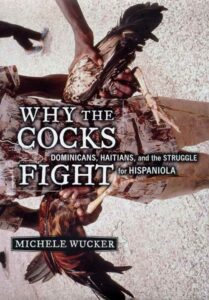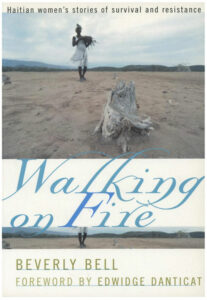Used books for sale
Photo: Unsplash
Want to learn more about Hispaniola? We’ve got you covered! Check out this collection of the best books about Hispaniola to get you started!
Share
Hispaniola, an island rich in history and culture, boasts a legacy that predates the arrival of Europeans. Known to its original Taino inhabitants as Ayiti, meaning “land of mountains,” and Kiskeya, or “Mother of all islands,” these names echo the island's profound significance and enduring beauty through centuries of change.
Curious about the layers of history, culture, and transformations Hispaniola has experienced? We’ve rounded up six pivotal books about Hispaniola that peel back the layers of time to reveal the essence of what has shaped this Caribbean island.
1. Dividing Hispaniola: The Dominican Republic's Border Campaign against Haiti
In "Dividing Hispaniola," Edward Paulino offers an in-depth exploration that's as insightful as it is profound. Tapping into archives from the Dominican Archivo General de la Nación to The Vatican Archive and even his own field research at the Haitian-Dominican border, this book is a treasure for those who crave a journalistic deep dive into the complexities of Hispaniola's shared yet divided history.
Paulino skillfully dissects the “border” concept, showing it as a hub of trade, a symbol of political divide, and the thin line that carves one island into metaphorically separate entities. He poignantly describes the two nations as “two wings of one bird,” illustrating their intertwined fates amidst a backdrop of division and conflict.
If you're drawn to unraveling the layers of historical narratives, Paulino's vivid storytelling and meticulous analysis will guide you through the tumultuous past of these neighboring nations. He not only chronicles the challenges but also sparks hope for a unified future, inviting you, the reader, to envision a path forward that's filled with optimism.
2. Why the Cocks Fight - Dominicans, Haitians and the Struggle for Hispaniola
Diving into "Why the Cocks Fight," Michelle Wucker crafts a riveting narrative that intertwines Haiti and the Dominican Republic not just by their geographical proximity but through the intricate dance of politics, religion, and cultural practices.
Just like two cocks in the same ring, fighting for territory and independence. Wucker masterfully navigates the island's passion for cockfighting—a vivid metaphor for the historical and ongoing rivalry between the two nations. She brings us into the heart of this spectacle, where bets are placed, and political strategies are whispered among the fervor of onlookers.
Why the Cocks Fight feels like you’re reading two different books in one, as Wucker switches back and forth, dedicating chapters to each island’s individual history of economic and political development, then circles back to how the two intersect. The book is sprinkled with captivating anecdotes and lesser-known facts not commonly captured in books on Hispaniola.
If you’re keen on a journey through the heart of Hispaniola, painted in the vivid hues of imaginative storytelling, this book is both fascinating and addicting!
3. We Dream Together - Dominican Independence, Haiti, and the Fight for Caribbean Freedom
Anne Eller, a Yale professor with a deep focus on Latin American and Caribbean history, brings to light the vibrant tapestry of the fight for freedom in her groundbreaking book “We Dream Together”. What sets this work apart is Eller’s meticulous analysis of the independence movements within Haiti and the Dominican Republic, woven into the broader context of anti-colonial resistance across the Caribbean.
Her narrative focuses on the pivotal moment in 1861 when Spain reoccupied the Dominican Republic, sparking a widespread movement against colonial rule. Eller's exploration goes beyond the surface, offering insights into the unity and division that have shaped these nations' paths toward sovereignty.
For anyone with a thirst for a deeper dive into the multifaceted history of Hispaniola and the Caribbean's quest for independence, Eller's "We Dream Together" is a must-read.
4. Walking on Fire: Haitian Women's Stories of Survival and Resistance
Looking for an intriguing and inspiring book about Hispaniola? Walking on Fire offers a compelling and inspirational collection of stories. Author and Haitian activist Beverly Bell presents 38 short stories about revolutionary Haitian women, each contributing to the Intricate narrative of Haiti's history of resistance and transformation.
Bell's work is divided into several thematic categories, including Survival, Expression, Political and Economic Change, Gender Justice, Transforming Power, and Solidarity. This structure allows you to either immerse yourself in the book from cover to cover or to select sections that resonate most with your interests.
5. The Borders of Dominicanidad: Race, Nation, and Archives of Contradiction
Lorgia García-Peña's "The Borders of Dominicanidad" offers a fresh and enlightening look into the Dominican Republic and Haiti's shared past and present. With an engaging style, García-Peña uncovers the stories of people living on the edges of these two nations, focusing on how their lives challenge long-standing national stories and the invisible lines that divide them.
This book weaves together the experiences of Afro-Dominicans, ethnic Haitians, and those who've moved abroad, showing how they've stood up against being silenced or left out by the official narratives.
While García-Peña tackles challenging subjects, such as the lasting impacts of colonialism by France and Spain, she does so through an academic lens. This means that while the book is rich with information and perspective, it might lean towards a more scholarly language that can be dense if you consider yourself a casual reader.
Want to quench your Hispaniola thirst further? Be sure to check out Five of the best books about the Dominican Republic and The 10 books you should read before visiting Haiti!
Written by Raia Garvin.
Published February 2024.
Subscribe to our newsletter
Get more travel inspiration, tips and exclusive offers sent straight to your inbox





